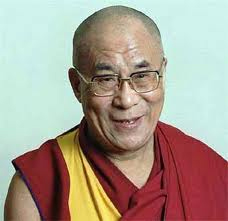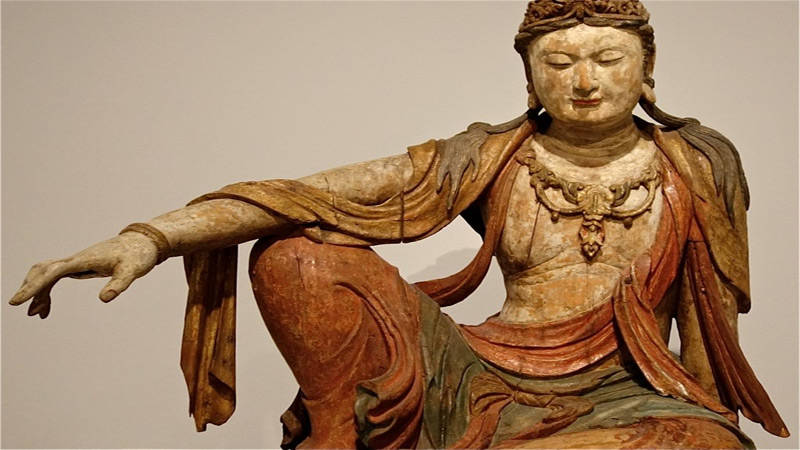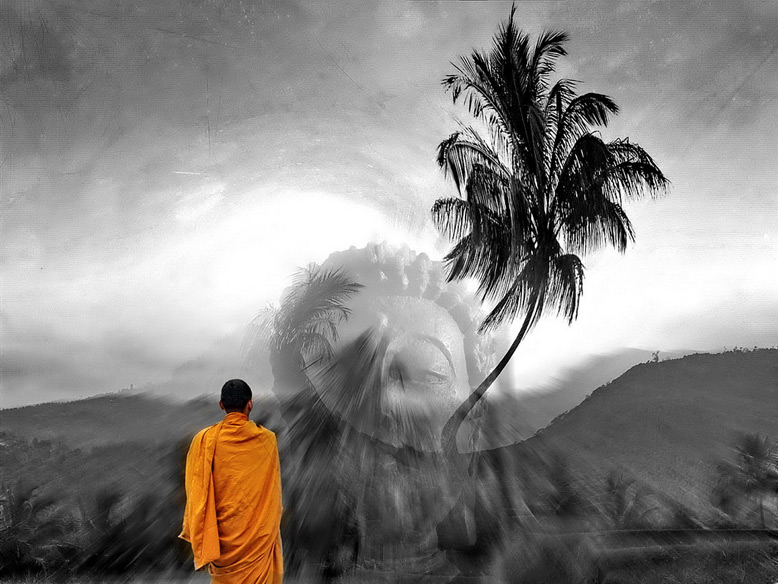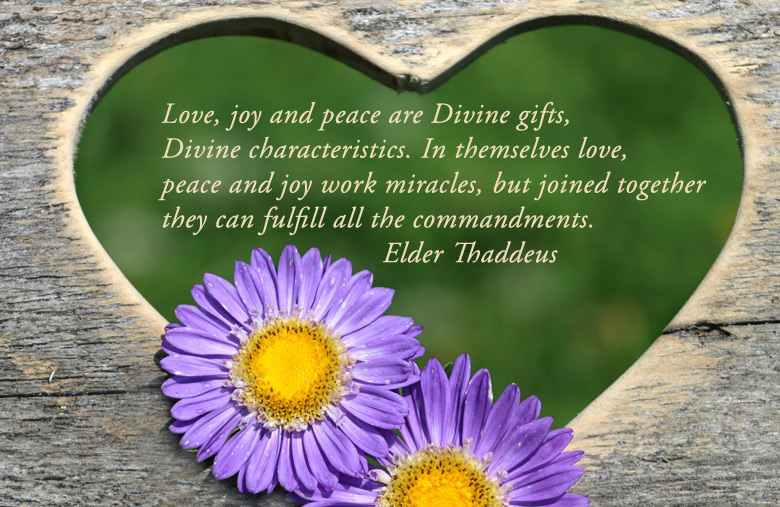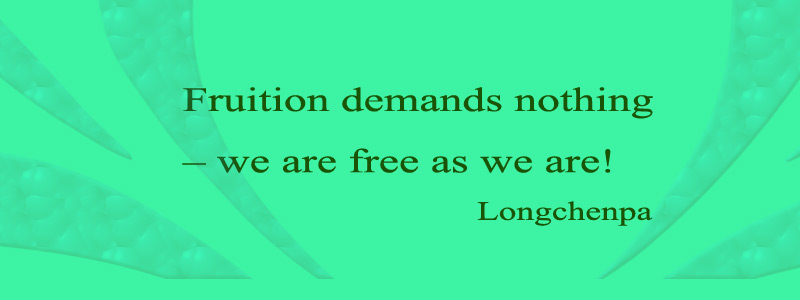
 ~ From a talk given by Rinpoche given at California Institute of Integral Studies on Nov. 16th , 2005 ~
~ From a talk given by Rinpoche given at California Institute of Integral Studies on Nov. 16th , 2005 ~
Dharma Teaching – Compassion and Wisdom
There is a saying in the Buddhist traditions:
Birds cannot fly with one wing.
They have two wings.
This means that one can never achieve the great awakening without cultivating the path of compassion as well as wisdom or emptiness.
Recently I met with a Tibetan lama who has been reading my poems and spiritual songs. He said that while he appreciated my poems but he thought I emphasized emptiness and didn’t say much about compassion.
He encouraged me to write more about compassion and loving kindness.
Therefore I feel that this talk is a miraculous opportunity for me. It allows me to remember how important it is to unite the practice of compassion with wisdom– the understanding of emptiness, the nature of reality.
These two are the foundation of Buddhist practice, especially in the Mahayana and Vajrayana traditions.
The word for compassion in the Tibetan language [sNying rje] actually means heart and the practice of compassion deals with the heart rather than the head.
Compassion has nothing to do with intellectual concepts or philosophy. It is about opening one’s heart. There is innate compassion within each of us. Our pure essence is compassion, whether we are aware of that or not.
When our mind is shrouded in layers of emotional upset we are not able to listen to that innate compassion even though it is the very pure essence of our consciousness.
For example when you are driving along and see an animal that has been killed, or you see somebody who has been in a car accident instantly you want to help them. It doesn’t matter that you don’t know their name, address or phone number.
Without having any prior contact you automatically feel sympathy and want to help. Often people recite prayers. You wish and aspire for them to be happy, to not suffer and to gain freedom and liberation. It is very natural.
You don’t have to be a bodhisattva to practice compassion. You don’t have to be a Buddhist or a Christian either. It’s natural.
You also experience this sudden expression of innate compassion when there are natural disasters or catastrophes such as earthquakes, floods, famine, and epidemics. At these times we see that there are many people everywhere on earth who care about the suffering of other people.
But sometimes it is easy to think that most human beings are self-centered and don’t care about the well being of others. This is quite easy to believe when you drive on the highway. Most people are extremely aggressive and self-centered when they drive.
Everyone tries to get ahead of everyone else by honking their horn and acting quite nasty. It seems that nobody gives a chance to anybody else.
But that’s not really true. When there is a great natural disaster we see that human beings care for each other. We saw this after hurricane Katrina. We have a sangha sister, a quiet southern lady, a wife, who seems to be quite low profile.
But suddenly overnight she became this bodhisattva, powerful personality. She went on the radio and asked everybody to donate bicycles. She wound up collecting 300 bicycles and gave them to those who had lost their vehicles and had no means of transportation.
She became this powerful human being with magic, power and so much potential to relieve other people’s suffering.
Even though we often experience our internal issues, mental defilements such as hatred and resentment, at the same time the very pure essence of our consciousness, our heart, is actually divine.
It is Buddha, awake. It is enlightened because it’s really love and compassion. In Buddhism they often say that the human mind or consciousness is like a mirror covered with dust.
When the mirror is covered with dust it can no longer reflect images but when the dust is removed the mirror is absolutely perfect. It’s already a royal mirror. It can reflect images.
The mirror has always been the mirror. The dust on the mirror is not the mirror. It is the incidental obscuration to the mirror. Similarly the true, pure, eternal essence of the our consciousness, of our being is actually already enlightened, its already Buddha, it is love, wisdom and compassion.
The states of unenlightened mind that we are experiencing in our everyday lives- anger, hatred, resentment, jealousy, confusion, fear– are not really a part of our consciousness. They are incidental obscurations.
They are not natural to our pure state of mind. And they can be completely transcended so that we are able to experience the pure essence of our consciousness which is compassion.
However if you leave the dust on the mirror, the dust never goes away. The dust can stay on the mirror for ages and ages, for eons and eons. One must take action to wipe the dust from the mirror. To remove the dust requires action or practice.
Loving Kindness and Compassion Prayer
We have to cultivate meditation, reflection on loving kindness and compassion in order to remove all of the incidental obscurations and bring about the complete awakening to our innate nature which is compassion.
There are numerous forms of practice in Buddhism regarding the cultivation of loving kindness and I would like to share two of those meditation methods with you. One is called The Four Immeasurables.
May all sentient beings have happiness and the causes of happiness.
May all sentient beings be free of suffering and the causes of suffering.
May all sentient beings never be separated from happiness and may they be free from sorrow.
May all sentient beings remain in the state of equanimity in which the duality of friends and enemies has been transcended .
This is a prayer that you can recite. Most Buddhist practitioners in the Vajrayana tradition recite this prayer a few times every day, in the morning, at noon, in the evening—3 times, 7 times or 21 times.
It is very good to memorize this prayer. It is a beautiful prayer. You don’t have to be Buddhist to recite it. You can be Christian, Muslim and still recite this prayer because there is no Buddhist terminology, ideas or philosophy. This is a beautiful inspiring prayer and that helps you to generate loving kindness.
For example, I myself am a very poor meditator and a very poor Buddhist practitioner. Often I discover that I am falling back into my old tendencies and propensities and sometimes it is quite easy to experience anger towards another human being. Not so much hatred.
It took a long time for me to resolve layers of my hatred that I have been storing for many lifetimes but sometimes I experience anger.
This happened a few days ago. Currently I am living with 3 dogs and recently one of the dogs pooped in my kitchen. So I brought all three dogs into the kitchen and I was ready to practice some kind of improvisational interrogation method.
I looked at their faces kind of asking who did this you or you? They knew that I was angry. They were definitely experiencing this negative vibration from me. Suddenly I remembered this prayer and started reciting it.
In that moment I felt this tremendous sense of loving kindness toward them and I experienced bodhicitta, ultimate love for 4 or 5 minutes. It collapsed. It doesn’t last a long time.
I experienced a sense of love and forgiveness and inner peace simply by reciting the prayer. That’s all I did. For some reason when I was looking at the dogs they looked very nervous and frightened and that opened my heart and lead me to the recitation of this simple Buddhist prayer called The Four Immeasurables.
I recommend that all of you recite this prayer a few times every day of your life, especially when you feel angry, confused, emotional. When you feel that your life is in turmoil, recite this simple prayer and you will feel your whole heart opening to loving kindness and forgiveness.
You will experience spiritual awakening right there simply out of reciting the prayer. When you recite the prayer you can concentrate on the meaning. It doesn’t require any formal previous studies or research of Buddhist teachings.
The talk continues here.
References for Further Reading
Introduction to Buddhism www
Mahayana and Vajrayana schools of lineage: www www
The Four Immeasurables www
Photo by Indi Samarajiva
About Tulku Thubten Rinpoche
Tulku Thubten Rinpoche was born in Tibet and took up spiritual training in the Nyingma lineage of Tibetan Buddhism at an early age. He was recognized as the incarnation of Anam Lama by several masters, including Gompa Tulku Rinpoche. Rinpoche came to the West in 1992, and teaches in fluent English.


